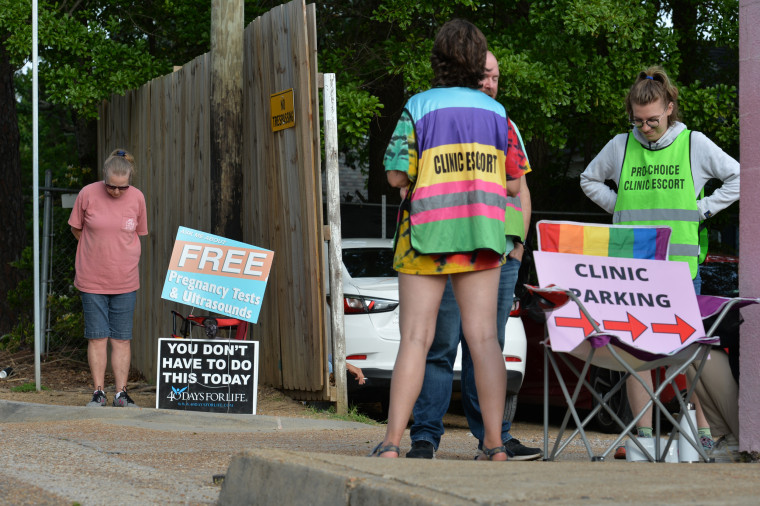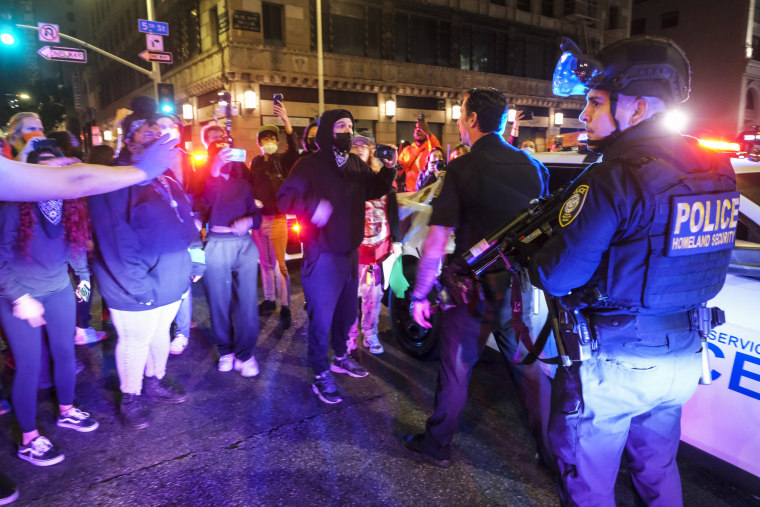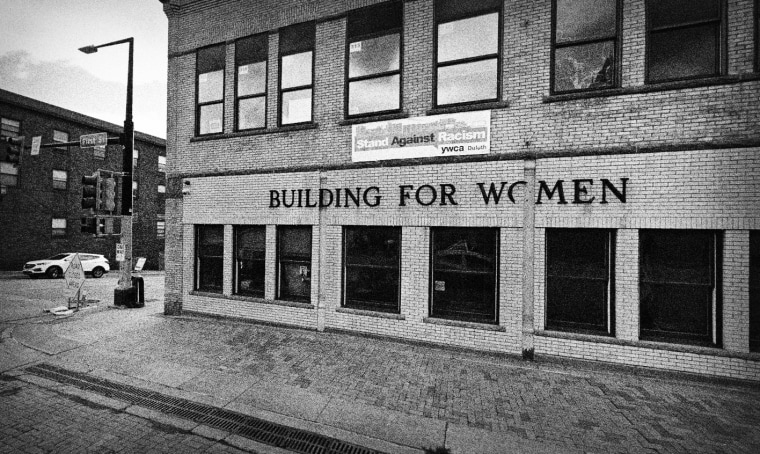Security, always a major concern for abortion clinics, just became more urgent.
The leak of a U.S. Supreme Court draft opinion that would overturn Roe v. Wade has clinics worried about an uptick in harassment and other aggressive activity by abortion-rights opponents outside their doors.
Laurie Casey, executive director of the WE Health Clinic in Duluth, Minnesota, said she is considering hiring security guards to boost protection in the aftermath of the Supreme Court leak. If the Supreme Court indeed nullifies Roe v. Wade, several states near Minnesota — including North Dakota, South Dakota, Wisconsin and Michigan — would restrict or ban abortions. That could draw more protesters to Casey’s clinic.
“Our gut feeling tells us we could see increases in protests and harassment because of the decision,” Casey said.
Violence against abortion providers has increased in recent years, according to data collected by the National Abortion Federation, which helps clinics develop security plans. This includes a rise in assaults and threats of harm, from 69 in 2016 to 254 in 2020, the last year the organization made data available. The group says it collects reports from its nearly 500 member facilities and gathers additional information to verify the incidents.
Melissa Fowler, the National Abortion Federation’s chief program officer, said clinics fear the news will lead to more attacks. In recent months, Fowler said, clinics have reported an increase in numbers and intensity of protesters following the enactment of a 2021 Texas law that bans abortions after six weeks of pregnancy and as the Supreme Court heard arguments on a Mississippi law restricting abortion.
“We know from past experience that news like this, political losses like this, can embolden people who want to harass or terrorize abortion providers,” Fowler said. “We are definitely on heightened alert, and we want our members to be on heightened alert.”

A May 2021 FBI report on domestic terrorism said changes to abortion laws were a common driver of criminal activity by extremists. The Department of Justice has prosecuted more than a dozen cases of violence and other crimes directed at abortion providers in the last decade.
While many clinics have their own security operations — including private guards, volunteer patient escorts and security cameras — they also depend on police to respond to threats and keep protesters from interfering with their work. The National Abortion Federation has a security division that includes former law enforcement and relays clinics’ concerns to local police.
Frank Straub, director of the National Policing Institute’s Center for Targeted Violence Prevention, said at times such as these, when there is heightened risk to clinics, police should have officers increase patrols.
“Depending on where this goes in the next couple days, police may want to think about if they want to have their crowd control teams on standby,” Straub said.
Lori Williams, clinical director at Little Rock Family Planning Services in Arkansas, said she was planning to ask police for extra patrols Thursday, the clinic's first day of seeing abortion patients since the leaked decision was published.
That request is part of the clinic's preparations for more protesters, and more aggressive ones, which Williams said typically happens when abortion is in the news. The same thing happened after the passage of the Texas law, when protesters realized that patients from that state were traveling to her clinic for abortions, she said.
"We want to let the police know to please check on us," Williams said.
News of the possible impending Supreme Court decision also triggered protests from abortion-rights advocates who marched in the streets of several cities. The only reports of violence were in Los Angeles, where a faction of demonstrators clashed with police, with some throwing rocks and injuring one officer, Police Chief Michel Moore said. Police struck some protesters with batons, the Los Angeles Times reported.

Outside the Jackson Women’s Health Organization, the Mississippi clinic at the center of the case before the Supreme Court, the atmosphere was quieter than usual in the hours following news of the draft opinion. At one point Tuesday, a Jackson Police Department patrol car drove slowly past, which a clinic escort said was a rare occurrence.
The same has been true outside the West Alabama Women’s Center in Tuscaloosa, Alabama, said Robin Marty, the director of operations there.
“As soon as I saw the information drop on Monday, security was my biggest concern,” Marty said. But there hasn’t been an increase in protesters, she said. “One bright side is that at least the protesters will feel like they’ve won something and leave us alone.”
She doesn’t expect that to last, though. If abortion becomes illegal in Alabama, the clinic will continue providing health care, including help with miscarriages, Marty said. That will likely mean continued hostility.
“I don’t expect it to go away even if Roe is overturned because our clinic will offer services as long as we can, and we will still have people trying to catch us doing something illegal,” Marty said.
America’s long history of violence against abortion clinics means security concerns will never ease.
Daniel O’Leary, the former police chief in Brookline, Massachusetts, remains haunted by a 1994 shooting in which abortion opponent John Salvi III killed two workers and injured five others at two local abortion clinics. Salvi was sentenced to life in prison, where he died by suicide soon after.
Before those attacks, Brookline police assigned a commanding officer to act as a liaison with protesters and clinic staff, O’Leary said. That work has continued in the years since. There have been protests at Brookline clinics, but no major acts of violence, O’Leary said.
“The police have to have a role in that because they’re going to be on the front lines, trying to talk to both sides,” O’Leary said. “That way at least you know each other.”

